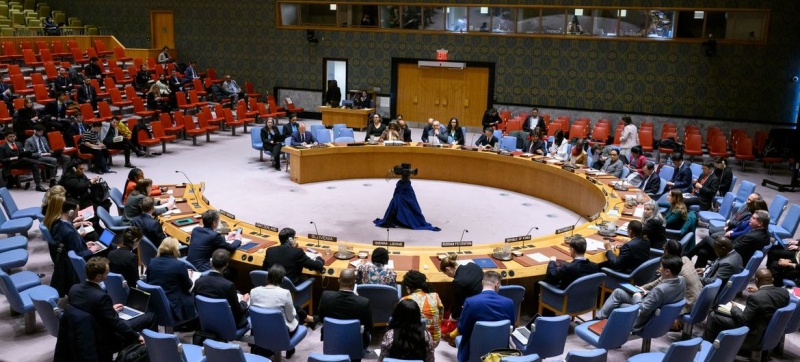
Meeting of the UN Security Council. UN: escalation of war in Ukraine is a threat to international security Peace and Security
The UN is shocked by the growing number of civilian casualties in Ukraine as a result of Russian attacks. At least 126 civilians were killed and 478 wounded in March, a 20 percent increase from February, according to the UN Human Rights Office. At the same time, the number of victims among children doubled in March: 57 children were killed or injured.
Assistant Secretary-General for Europe, Central Asia and the Americas Miroslav Jenča made this statement on Thursday at the UN Security Council. He stressed that attacks on Ukrainian cities and towns have become a “daily destructive pattern.”
Since February 2022, according to the Office of Human Rights (OHCHR), the war in Ukraine has killed 10,810 civilians, including 600 children, and injured 20,556 people, including 1,357 children.
As Jencsa emphasized, “the current trajectory of escalation of this war poses a direct threat to regional stability and international security.”
Shelling of Ukrainian energy facilities
Jenča recalled the intensive and systematic attacks on Ukrainian energy infrastructure throughout the country . Since March, such attacks have destroyed or damaged more than two dozen energy facilities across the country, including the Dnieper hydroelectric station.
As a result, millions of Ukrainians in large cities and rural areas lost access to electricity. In some settlements, water supply was also disrupted.
“We are concerned about the humanitarian impact, given reports that disruptions could continue for many months due to the extent of the damage,” Jencsa said.
Strikes on Russian territory
“We are also witnessing the spread of hostilities across the borders of Ukraine, with regular cross-border strikes on Russian territory,” he said He.
He stressed that attacks on civilians and civilian infrastructure are prohibited by international law.
“They must stop immediately, and we continue to condemn them wherever they occur,” Jenca said.
Drone attacks on Zaporizhia NPP
Commenting drone attacks on the Zaporozhye nuclear power plant, which is under Russian occupation, Jencsa recalled the statement of the head of the IAEA, Rafael Mariano Grossi: these attacks pose a serious threat to the nuclear safety of the plant.
“We join Director General Grossi’s call for an immediate end to these inexcusable attacks to avoid a major nuclear accident,” Jencsa said, adding that the consequences of such an accident – intentional or not – would be catastrophic for everyone.
Attacks on hospitals and schools
Attacks on medical institutions do not stop in Ukraine and schools, Eden Wosornu, a representative of the UN Office for the Coordination of Humanitarian Affairs (OCHA), told Security Council members.
Since February 2022, the World Health Organization (WHO) has confirmed more than 1,700 attacks affecting healthcare facilities, personnel, transport or patients.
“These attacks have significantly hampered the delivery of health services. Women and girls’ access to health care, including maternal and reproductive health care, is severely limited in rural areas or near front lines,” she said.
During the same period, more than 1,000 educational institutions were damaged or destroyed by fighting, according to the Office of Human Rights. Millions of Ukrainian children do not have the opportunity to study.
Read also:
UNICEF and LEGO help restore mental health to Ukrainian refugee children
“The social isolation and constant fear caused by this war is having serious impact on children’s mental health. More than 1.5 million children urgently need support to cope with stress, anxiety and other mental health issues related to war,” Vosornu said.
She also said that Russian strikes are having a negative impact on humanitarian aid operations. In 2024, two aid workers were killed and 10 were injured. Ukrainian emergency response personnel also become victims of shelling – when certain objects are subjected to repeated strikes, which leads to the death of the wounded and those who come to their aid.
“ Attacks targeting the wounded and those helping them are prohibited under international humanitarian law,” Vosornu emphasized. They must stop, she added.
